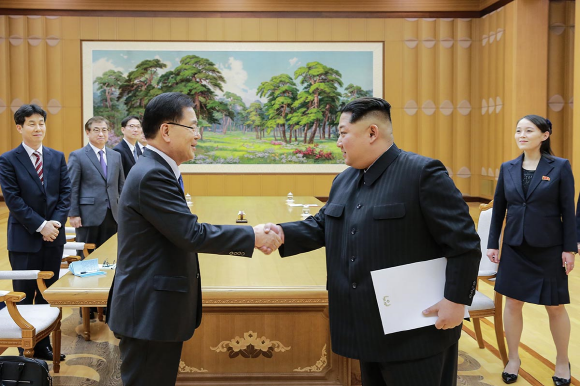
Engineering industry is expected to be a core factor in the economic development of North Korea as it is a group of experts who design all facilities of infrastructures, including roads, railroads, ports, plants and water pipes, which are essential to economic development in the developing countries. For the past 10 years, the engineering industry has sought to take preemptive measures by forming North Korea development task force, but it has not even established a master plan for developing infrastructures of North Korea.
However, the industry maintains that the situation is very different this time around as the North has made clear its intention to denuclearize the Korean Peninsula. In addition, “It is time to preemptively address by the TF”, the industry said with one mouth. While the first and second inter-Korean summit were held in the late of president's tenure in the past, this coming summit is held in less than a year of his term. Therefore, once fund-raising measures are organized, it would be possible to carry out the projects.
Experts say that if the United States, which holds the largest stake in WB and ADB, can accept North Korea as a member in the wake of the North Korean-US dialogues, then the infrastructure development of North Korea could be implemented within this year. U.S. president Donald Trump said North Korea is acting positively and possible progress is being done in dialogue. As North Korea’s leader Kim Jong-Un declared that he wants to be seriously treated as a conversation partner, if North Korea abandons its nuclear ambitions, President Trump will possibly regard the North as a member of international community such as ADB, WB, IMF.
However, the key issue is the funding required to develop North Korea's SOC, that is to say the costs of reunification. At this time when household debt amounting to 1,500 trillion won has emerged as the biggest task of the South Korean economy, if North Korea owes on the South Korean government budget alone, South Korean will sows and North Korean might reaps.
On the other hand, if the MDB funding supports the North's infrastructure development by leveraging U.S., it could give North Korea the cause of regime security and take away the burdens from the South Korean government. For North Korea, we must pave the way to self-development just like role models of South Korea, Vietnam and other countries with the assistance of the WB and the ADB. Taking a lesson from mistakes of Germans, which suffered from the aftermath of the reunification cost, the people of South and North Korea should move freely, close economic and cultural gaps, and complete the unification process.
The engineering industry has already called the development of North Korea a top priority for the next government policy project in May last year, saying, "We should resume inter-Korean cooperation on humanitarian grounds."
Water experts expressed the need to open a new channel for humanitarian small-scale water projects to avoid controversy over being too generous with North Korea. "Currently, North Korea has no water storage facilities, so it picks up drinking water from streams. Considering that the facility usually has a 30-year lifespan, the facility that was completed in the 1970s has lost its function. Just as WB and AIIB support the resolution of drinking water and sewage treatment in developing countries, they can provide humanitarian aid to North Korea by providing water projects." a North Korea water project expert said.
On the other hand, road experts have proposed the closed highway between Paju and Sinuiju and the Gaema Plateau Express. The closed highway between Paju and Sinuiju connects South Korea and China without a ramp going to North Korea. Through this, South Korea will get a network to China, while North Korea will get free highways and service fees. The Gaema Plateau Express is a project to link roads, railways, and pipelines to Russia, and it is proposed to operate in a closely-closed manner as in Paju and Sinuiju.
City experts argue that "South and North Korea should create an open national corridor that connects the continents and oceans," adding "I hope Cheongdan County in South Hwanghae Province could be the new administrative capital of a unified Korea." Asian Highway 1, which runs from Busan to Gaesong to Sinuiju, will pass through the Cheong Dan, and be connected to the west coast after passing the Imjingang River. It is also close to China's logistics hubs Dalian and Qingtao, so it is well positioned as a port. Experts say that the port is equipped with the location condition to accommodate complex complexes such as industrial, residential, and logistics facilities, like Pyeongtaek Port, which targets trade with China.


